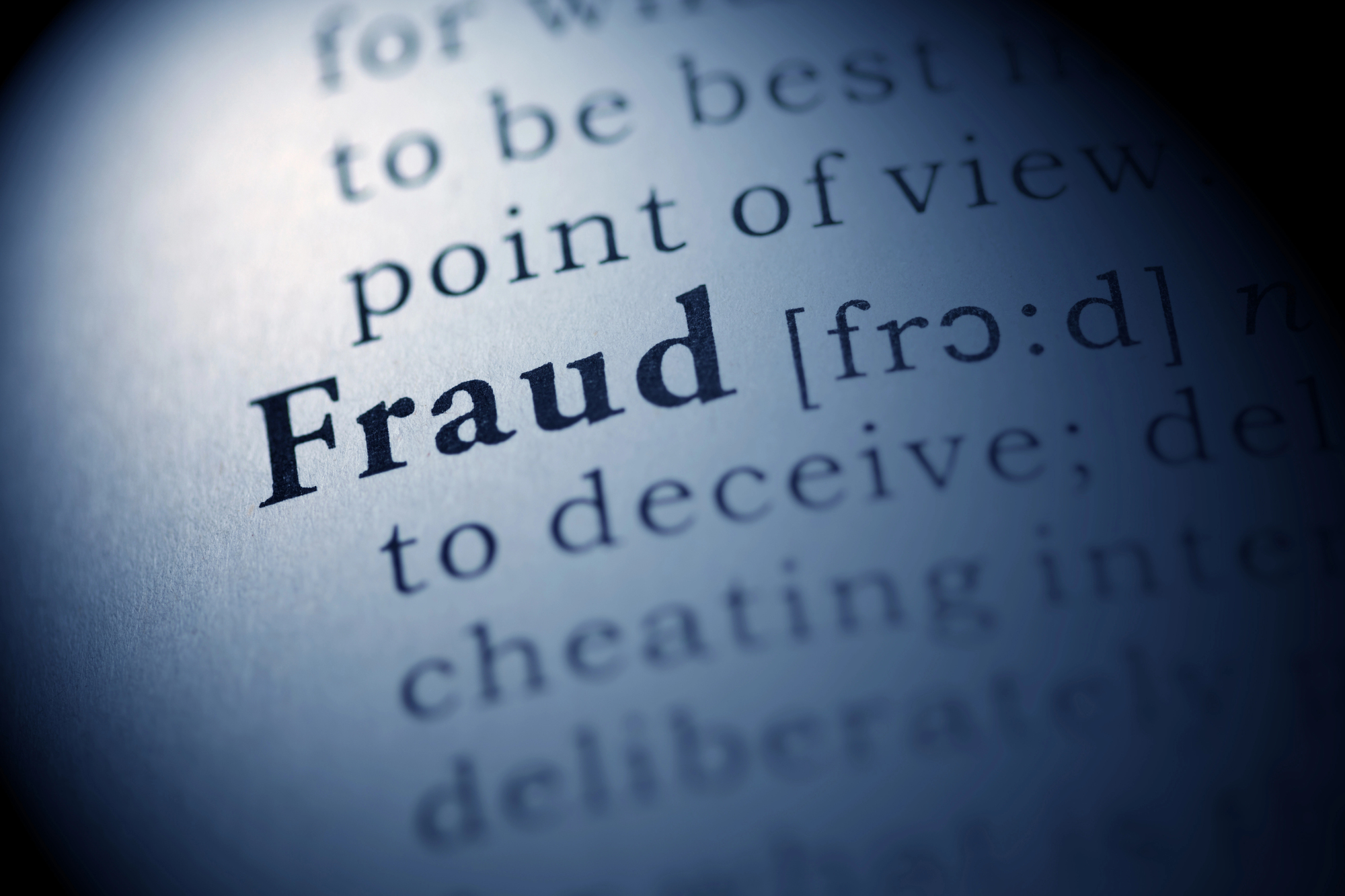If you are facing fraud charges, you need a criminal defence lawyer in Toronto to look at your case as soon as possible.
Fraud is in umbrella term that describes variety of criminal activities under Canadian criminal law. It is defined as defrauding the public or any person of property, money, valuable security, or service by deceit, falsehood, or other fraudulent means.
Committing fraud can lead to many negative outcomes; both for your personal and professional life. Fraud is similar to the crime of theft, but it is different as it involves an element of deceit or false representation, like attempting to defraud someone or the public of their property, money, or services.
The consequences are dependent on the type of fraud committed.
Section 380 of the Criminal Code of Canada outlines the offence of fraud and also separates it into 2 categories: fraud over $5000 and fraud under $5000. Fraud that is over $5000 is considered more serious and is an indictable offence. Fraud under $5000 however, is considered less serious and is classified as a hybrid offence. This means that the Crown Prosecutor can decide whether it will be considered as a summary offence or an indictable offence, depending on the circumstances of each case.
If you are convicted of fraud over $5000, you could potentially be imprisoned for up to 14 years. If you are convicted of fraud under $5000, you could be sentenced with up to 2 years in prison and/or a $5000 fine.
Strategic Criminal Defence is a top Google-rated criminal defence firm in Toronto, with over 500 5-star reviews. Our firm, and our experienced legal team, have defended clients in over 10,000 criminal cases. Leveraging our extensive network of lawyers and decades of experience, we craft defence strategies to help those accused of fraud beat the charge.
The lawyers at Strategic Criminal Defence are both highly experienced and dedicated to defending your rights and future in the face of these charges. Contact a Toronto fraud lawyer today by calling (647) 986-8077.

Key Takeaways
- The severity of a fraud charge depends on if the fraud was over or under $5000. If it was over $5000 it is more severe, and if it is under $5000 it is less severe.
- If you commit fraud of over $5000 you could be facing up to 14 years in prison. If you commit fraud of less than $5000 you could be facing up to 2 years in prison and/or $5000 fine.
- If you are charged with fraud, the police may release you immediately, with a document outlining your charges and any conditions. However, in some cases a formal bail hearing may be necessary for release (this will happen within 24 hours of your arrest). This will depend on several factors unique to your case, such as whether you have a previous criminal record or the seriousness of the allegations you face. Learn more about the court process in Toronto.
- Being accused of fraud can be stressful, but it’s important to remember that a fraud charge can successfully be fought with the help of a Strategic Criminal Defence lawyer.
How can a fraud lawyer in Toronto help?
A lawyer from Strategic Criminal Defence can be your strongest ally if you are facing fraud charges. We can give you important pre-charge advice, explain your rights in the situation, and help you avoid actions that could harm your case. We can also help you communicate and interact with law enforcement.
Our team can help you fight your case successfully by gathering evidence, interviewing witnesses, and retaining help from expert witnesses as well. All of these steps are crucial in building a successful defence.
Fraud cases often hinge on detailed financial evidence. Our lawyers can gather financial records, communications, and other evidence that supports your side of the story. In complex fraud cases, they can bring in financial experts who can explain technical details to the court.
The criminal justice system and processes are complicated. We can help you navigate these complexities and provide you with a strong representation in court. All of these factors will provide you with the best possible chance in gaining a favourable outcome.
During trial, they leverage their knowledge of fraud-specific defences, challenge the prosecution’s evidence regarding intent and financial transactions, and provide comprehensive representation tailored to the unique aspects of fraud charges.

Fraud Charges in the Criminal Code of Canada
According to section 380 of the Criminal Code:
Fraud
380(1) Every one who, by deceit, falsehood or other fraudulent means, whether or not it is a false pretence within the meaning of this Act, defrauds the public or any person, whether ascertained or not, of any property, money or valuable security or any service,
(a) is guilty of an indictable offence and liable to a term of imprisonment not exceeding fourteen years, where the subject-matter of the offence is a testamentary instrument or the value of the subject-matter of the offence exceeds five thousand dollars; or
(b) is guilty
(i) of an indictable offence and is liable to imprisonment for a term not exceeding two years, or
(ii) of an offence punishable on summary conviction,
where the value of the subject-matter of the offence does not exceed five thousand dollars.
Minimum punishment
(1.1) When a person is prosecuted on indictment and convicted of one or more offences referred to in subsection (1), the court that imposes the sentence shall impose a minimum punishment of imprisonment for a term of two years if the total value of the subject-matter of the offences exceeds one million dollars.
Affecting public market
(2) Every one who, by deceit, falsehood or other fraudulent means, whether or not it is a false pretence within the meaning of this Act, with intent to defraud, affects the public market price of stocks, shares, merchandise or anything that is offered for sale to the public is guilty of an indictable offence and liable to imprisonment for a term not exceeding fourteen years.
Examples of Fraud Charges
Here are some examples that could lead to fraud charges in Toronto:
- Tax fraud
- Identity theft
- Insurance fraud
- Possession of stolen property
- Forgery
- Embezzlement
Consequences of a Fraud Charge
There are both legal and non-legal impacts fraud charges can have on your life. From a non-legal perspective, fraud charges can negatively affect your personal and professional life.
Since fraud is a term that covers a wide variety of actions, the consequences also vary. They can range from discharges to fines, probations or even incarceration. Section 380 of the Criminal Code highlights the maximum penalties of fraud as:
Fraud over $5000 or involving a testamentary instrument (e.g., a will) could result in up to 14 years in prison
Fraud that is $5000 or less can result in up to and including 2 years imprisonment if prosecuted by indictment, or less than 2 years if it is a summary conviction
The sentencing options in fraud cases can vary, and will depend on factors like the amount misappropriated, the relationship between you and alleged victim, your prior criminal record, and other circumstances of the case.
Fraud Charge Defences
Facing fraud charges can be intimidating, but there are ways to defend yourself. Our team at Strategic Criminal Defence will look at all the facts and help you build the strongest defence.
Here are some common defences that might be used when someone is accused of fraud:
Factual Innocence: This is when the facts and evidence do not support your involvement or other key elements of the offence and is usually the strongest defence. Examples include:
- Lack of fraudulent intent: if you genuinely didn’t know that your actions were dishonest or deceitful, you may not be held accountable. But, if you were reckless or just ignored the fraudulent nature of your actions, you may still be found guilty.
- Absence of loss: If the victim didn’t face any actual or potential loss, then the fraud allegation may be weakened. However, even if the Crown cannot prove that you committed fraud, they may still be able to convict you for conspiracy to commit charge.
- Authorization: Sometimes what looks like fraud was actually approved by the other party. This defence argues that you had permission to take the actions in question. For instance, if you are accused of using company funds improperly, but can show your supervisor approved these expenses, this could be a valid defence.
- Good Faith Reliance on Expert Advice: If you relied on the advice of professionals like lawyers, accountants, or financial advisors before taking actions that led to fraud charges, this could be a valid defence. For this to work, you must show you fully disclosed all relevant information to the expert, received their advice, and reasonably followed it believing it was proper and legal.
Fraud Charge Investigation
A fraud charge allegation is typically instigated when a complainant informs the police. The police will then collect statements from those involved, and look through any relevant documentation, like financial records. The case could last weeks, months or even longer depending on how complex it is. The police may request your presence at the station to question you if you become a subject of interest.
Once the police have collected their evidence, they will arrest you if they believe you are the perpetrator.
If you are charged, the police will create a “disclosure package” of all the collected evidence and give it to the Crown Prosecutor. You have the right to see this package and review the evidence against you. Our lawyers will assist you in acquiring and reviewing the disclosure package to examine the Crown’s case and identify potential legal defenses.
Bail Conditions for Fraud Charges
When someone is charged with fraud, they may be released from jail before their trial if they agree to follow certain rules. These rules are called bail conditions. The judge decides these conditions based on how serious the fraud charges are and whether the person might be a risk.
Most fraud cases involve strict financial bail conditions. This prevents them from moving money around or continuing any suspicious financial activities while waiting for trial.
Travel restrictions are very common in fraud cases. The accused may be limited to staying within their city or province. This is especially true in larger fraud cases where the person might have connections or assets in other countries.
The court often forbids contact with alleged victims or witnesses in the fraud case. For example, if someone is accused of investment fraud, they cannot contact the people they allegedly defrauded. They also might be banned from contacting former business partners who could be witnesses.
Regular check-ins with a bail supervisor or court officer may be required. They might also need to notify the court about any changes in their address or employment.
The court takes violations of bail conditions very seriously. Breaking any of these rules can result in being sent back to jail until the trial is complete.








